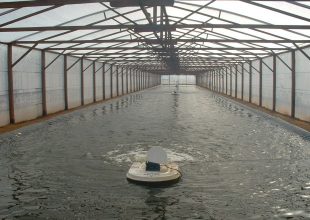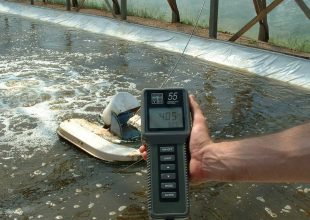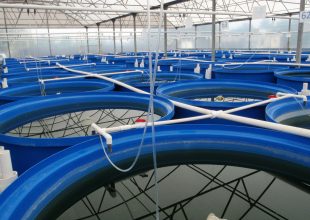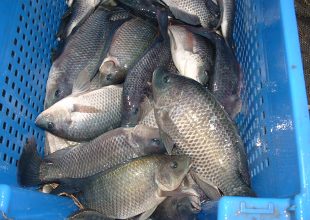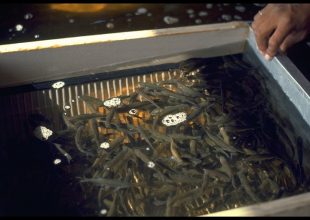Who we are
In 1985, ZIMMERMANN AQUA SOLUTIONS (ZAS) starts in Southern Brazil as HYDROLOGICA AQUACULTURA LTDA. During the 80’s and 90’s we focused in technical support of existing projects of freshwater shrimps and tilapias, in the American Continent (Brazil, Uruguay, Argentina, Peru, Colombia, Ecuador, USA, Jamaica, and Mexico).
By the turn of this Century, our base was moved to Norway, Sergio Zimmermann was working initially for six major local companies involved in Aquaculture (Orkla Finans, AquaOptima, EWOS, Inocap, Akvaplan Niva, and GenoMar) and from 2007 to 2011, Sergio Zimmermann worked with Akvaforsk Genetics Center. By October 1st, 2011 he registered ZAS in Sunndalsøra as a Norwegian Company dedicated to provide consultancy and technical support to the global aquaculture industry.
Today ZAS is one of the top-five global tilapia/shrimp aquaculture consultancies, with nearly 30 projects on every continent for over three decades:
Americas: USA, México, Jamaica, Nicaragua, Colombia, Ecuador, Peru, and Brazil.
Africa: Angola, Zimbabwe, Zambia, Uganda, and Kenya.
Asia: Singapore, Bangladesh, Vietnam, China, the Philippines, Thailand, and Kurdistan.
Europe: Norway and Sweden, soon UK.
ZAS IN A NUTSHELL (A TIMELINE OF INNOVATIONS)
OUR DNA
Vision
The vision of Zimmermann Aqua Solutions (ZAS) is to be market leader with the highest quality of services with good environmental and social practices, closing the economic and ecological loops of resources.
Mission
The mission of ZAS is to commercially develop a sustainable aquaculture within the concept of circular economy, with the full reuse of water (zero effluents) and aquatic nutrients through a range of innovative services.
WANT TO KNOW MORE ABOUT OUR COMPANY? CURIOUS WHAT ELSE WE DO?
About Sergio zimmermann
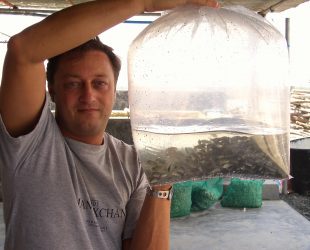
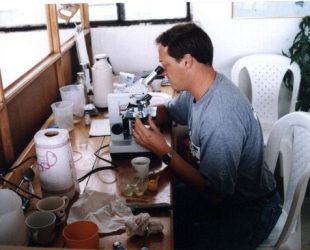
Agronomist, B.Sc. (1985, UFRGS – Federal University of Rio Grande do Sul State, Brazil) and M.Sc. in Animal Sciences/Aquaculture (1988, UFRGS, Brazil); Specialization in Aquaculture (1988, The Live Sciences Institute, The Hebrew University of Jerusalem, Israel); with full financial support of the CNPq/CAPES; started his PhD Program of Aquaculture at Stirling University, Scotland (2002-2004) followed by the Agri-Doc Program at the Norwegian University of Live Sciences (UMB) at Ås, Norway (2006-2012), and presently engaged at the remote Post-Doc Program at the Microbiology Department at the Agriculture University of Sweden (LSU) at Uppsala, Sweden with emphasis in Circular Economy.
From 1989 to 1996 was Associated Professor I in the graduation courses of Aquaculture at the Agronomy and Veterinary Schools at UFRGS, the Oceanology and Carcinology at FURG and UFSC, all Federal Universities in Southern Brazil; during 19 years (1990 – 2009) was Adjunct Professor II and Research Coordinator at The Lutheran University of Brazil (ULBRA, Canoas, Brazil).
Designed and supervised the constructions of the main tilapia hatcheries in the World, ProGift (Haikou, China – 2000), Manit (Pechaburi, Thailand – 2002), and Gifu-GenoMar (SangGiang, China – 2003), being start-up supervisor and currently is the technical responsible for the first two projects; also responsible for the expansion of several large tilapia/shrimp/paiche hatchery/grow-out projects in África (LHA/ACF in Zimbabwe, Zambia and Uganda; Inocap in Uganda/Kenya) and in Latin America: Brazil (Veggie-Fish, Aquabel, GreenBiofloc, Geneseas, Netuno, and Camanor), Peru (Grupo Redondos/Acuahaura/Naltech), Ecuador (Modercorp-Garzal, Aquamar, and Produmar), Colombia (Aquaprimavera, Agriinco and Solla), and Mexico (AquaMol, Maroa, Armor/Nutec and Procumar).
From 2001 to 2006 was vice-president of the Norwegian company GenoMar ASA (today AquaGen/EW Group), and from 2007 to 2011 coordinated the Tilapia Division of Akvaforsk Genetics Center AS (recently Benchmark Genetics Norway AS), planning and operating several breeding nucleus in Asia and Americas.
Since 2011 to present, gives international consultancy from his own company Zimmermann Aqua Solutions located in Sunndalsøra, Norway, and is co-owner of the following tilapia/vannamei/paiches-arapaima business: Norway (Aura Biofloc), Brazil (Instafloc/FermentAqua, GreenBiofloc and Aquatica), Mexico (AquaMol, Maroa and Procumar), Jamaica (SunShine Acuaponics), USA (Florida Aquaculture Investment Group) and is giving technical support in aqua feed, low-cost fermented feeds and biofloc aquaculture in 20 countries.
During the last 33 years, presented papers in more than 100 scientific events, published more than 120 scientific articles, book chapters, and is consultant/editor of three scientific publications in Brazil and USA; Vice-president of the Latin American Chapter of the World Aquaculture Society (WAS) from 1999 – 2004 and president of the same Chapter in 2008 and 2009; secretary of the Brazilian Aquaculture Association (Abraq) in 1999 and 2000.
Has lived practicing aquaculture in Israel, Sweden, Singapore, China, USA and in Norway, and for short periods in Mexico, Thailand and The Philippines.
Look also the CV official site of the Brazilian National Research Council (CNPq) at: http://lattes.cnpq.br/5048947055265778 and http://no.linkedin.com/in/sergiozimmermann/en.
What can we do for your Company?
Preliminary Stage
- First Meetings/Contacts for Developing the Concept of the Project.
- Site identification/selection/inspection visit and initial studies.
- Feasibility Study and Business Plan or Visit Report.
Construction Stage
- Environmental Impact Assessment.
- Engineering Project (basic and detailed drawings) of the first/second phases, quarantine area for broodstock importation/initial growth.
- Construction supervision/management, Equipment specifications and sourcing.
- Pre-training in our site, Operation Manual with adapted protocols.
- Start-up Operations with “on site” Training .
Operation Stage
- Long-term remote technical supervision & technology update.
- New staff pre-training in our site.
- Optimization of the operation/management continuous with technical supervision and training “on site”.
- Trouble shouting and marketing assistance/networking facilitation.








